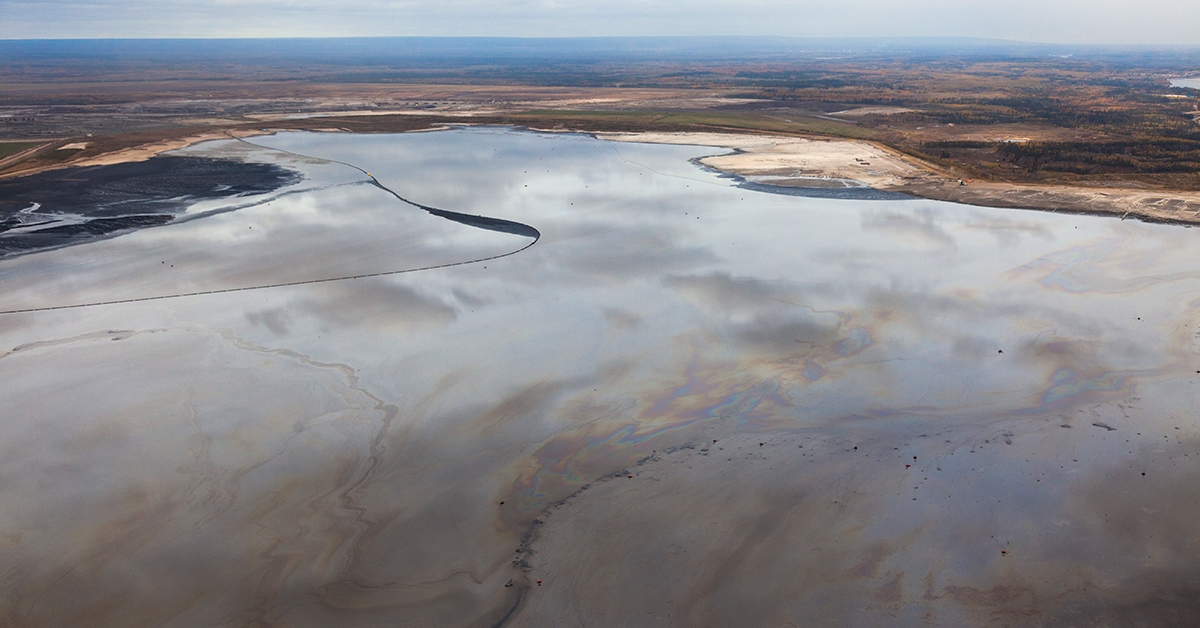CEC Secretariat releases report on Alberta (Canada) Oil Sands Tailings Ponds
Alberta Tailings Ponds II
Montreal, 4 September 2020—Today, the Secretariat of the Commission for Environmental Cooperation (CEC) made public the Alberta Tailings Ponds II Factual Record, after the CEC Council voted to authorize its release. This report is the result of the CEC’s Submissions on Enforcement Matters (SEM) process, which allows citizens and organizations across North America to raise concerns about the enforcement of environmental laws by Canada, Mexico or the United States.
The factual record is based on a 2017 submission filed by Environmental Defence Canada, the Natural Resources Defense Council (US), and Canadian resident Daniel T’seleie, which asserted that the Government of Canada was failing to effectively enforce the pollution prevention provisions of the federal Fisheries Act with respect to the alleged leaking of deleterious substances from oil sands tailings ponds in northeastern Alberta, Canada.
In response to the Submission filed with the CEC Secretariat, Canada reported in late 2017 that it had conducted a series of proactive inspections at various tailings ponds sites in Alberta between 2009 and 2014, which did not lead to any further enforcement actions because of a lack of sufficiently developed scientific methods for detecting substances and determining whether they are a result of seepage.
In its decision of August 2018 to authorize the development of this factual record, the CEC Council found that Canada’s response provided sufficient information concerning its reasonable enforcement of discretion under Article 45(1)(a) of the North American Agreement on Environmental Cooperation and SEM Guidelines 9.4 and 9.5, but directed the Secretariat to prepare a factual record on three issues. In the Alberta Tailings Ponds II Factual Record, released today, the Secretariat’s review of publicly available information disclosed the following:
- The Secretariat’s independent expert concluded that peer-reviewed scientific literature and non-peer reviewed industry reports show that, based on scientific analytical methods available today, in certain situations there is scientifically valid evidence of oil sands process-water (OSPW) seepage into near-field groundwater around tailings ponds; in other words, in these situations it was possible to determine that the bitumen-related substances present are not naturally occurring but are from discharges from tailings ponds. The Secretariat’s expert also found that there is little scientific evidence that OSPW is likely reaching natural surface waters.
- Regarding Canada’s Oil Sands Monitoring Program, managed by both the federal and provincial governments together with partners, Canada confirmed that this program focuses on ambient environment monitoring issues and does not have a direct enforcement mandate. The Secretariat observed that although the program often studies and collects information related to oil sands tailings ponds and their potential effect on ground or surface water, it is unclear from publicly available information how that information feeds into any Fisheries Act enforcement decisions.
- The Secretariat found a lack of evidence showing any coordination between the federal government of Canada and the provincial government of Alberta on tailings ponds referenced in the submission or in Canada’s response to it, despite the existence of an interagency agreement and inspections conducted.
The complete factual record, including background information on programs relating to oil sands tailings ponds, can be found on the public registry on the CEC’s SEM website.
This submission and factual record were processed and developed under the SEM process established by the North American Agreement on Environmental Cooperation, the environmental side agreement to NAFTA. The new North American trade agreement, which came into force on 1 July 2020, also contains renewed SEM provisions.
For media inquiries:
Megan Ainscow
Head of Unit, Communications
Commission for Environmental Cooperation
mainscow@cec.org
C: 438-827-8588

Alberta Tailings Ponds II
The CEC SEM Process
The CEC Submissions on Enforcement Matters process supports public participation, information-sharing between governments and the public, and transparency and openness in the effective enforcement of environmental law in North America. If you have reason to believe that an environmental law is not being effectively enforced by Canada, Mexico or the United States, the SEM process may address your concerns.
As of 1 July 2020, the CEC’s SEM process is governed by USMCA Articles 24.27 and 24.28 of the Environment Chapter of the free trade agreement between Canada, Mexico and the United States (CUSMA, T-MEC, USMCA).
Want to learn more about the SEM process? Please watch this two-minute video for an introduction: